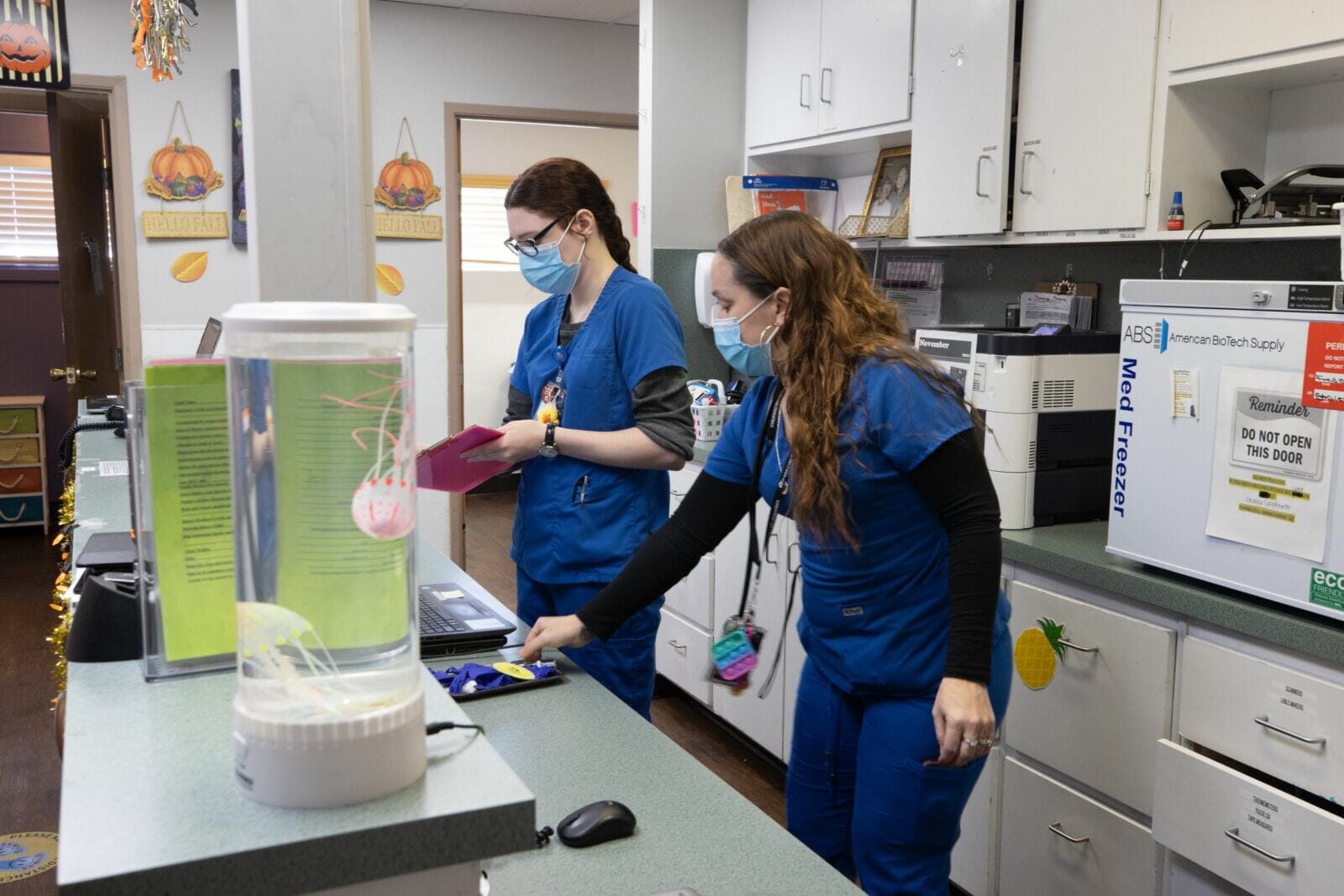Local hospitals are placing orders for kids doses of the Pfizer COVID-19 vaccine after the Centers for Disease Control and Prevention officially approved it for ages 5 to 11. Pediatricians are preparing for an expected rush of appointments in the coming days, and they suggest that parents prepare their kids beforehand.
The CDC said in a news release late Tuesday that the delta variant has resulted in case surges in children during the summer season, with an increase during a six-week period from the end of June to the middle of August.
“Together, with science leading the charge, we have taken another important step forward in our nation’s fight against the virus that causes COVID-19,” said Dr. Rochelle Walensky, CDC director. “We know millions of parents are eager to get their children vaccinated and with this decision, we now have recommended that about 28 million children receive a COVID-19 vaccine.”
READ ALSO: Supreme Court upholds ruling that allows Arizona school mask mandates
The CDC said the Pfizer-BioNTech COVID-19 vaccine for children contains the same active ingredients but is administered through a smaller needle at a third of an adult dose.
Although COVID-19 cases in children aren’t as likely to result in serious illness or hospitalization, data from the CDC show that as of Oct. 30, there have been 680 COVID-related deaths in Americans 18 or younger since Jan. 4, 2020.
“It is certainly true that 5- to 11-year-olds are not likely to die from the virus, but they can get pretty sick,” said Dr. Joshua LaBaer, executive director of Arizona State University’s Biodesign Institute. “Moreover, they will be at risk of transmitting the virus to other kids, and ultimately, they can become vectors to transmit it to people who are at risk for severe outcomes.”
Concerns of “long COVID,” the term given to long-term complications from COVID-19, was also a consideration in the CDC’s approval. According to the CDC, common conditions of long COVID include fatigue, headache, insomnia, difficulties concentration, muscle and joint pain and cough.
According to data from Johns Hopkins University & Medicine, 3.87 million Arizonans are fully vaccinated, with 8.85 million doses distributed across the state. In Maricopa County, 2.4 million residents have received at least one dose of a vaccine as of Oct. 26.
Like the flu vaccine, children should get the COVID-19 vaccine as a way to minimize symptoms of the virus and to prevent it from spreading to higher-risk family and community members, LaBaer said, because cases are not falling.
Efforts to vaccinate children
Some health care providers won’t begin administering vaccines to children until next week, but some pediatrics, like ” rel=”noopener” target=”_blank”>MVP Kids Care in the Maryvale neighborhood of west Phoenix will begin vaccinating ages 5 to 11 as soon as Thursday. They already have administered 12,000 doses to kids 12 and older since April.
Doctors and nurses at MVP Kids Care in the Maryvale neighborhood of west Phoenix will begin vaccinating ages 5 to 11 on Thursday. They already have administered 12,000 doses to kids 12 and older.
Dr. Bret Bjornson of MVP Kids Care said there has been a “heavy interest” coming from parents to get their children vaccinated since the adult vaccines were released.
Rachel Ries, MVP Kids Care senior director of operations, said the office has scheduled about 600 new appointments for the vaccine since the CDC’s approval for young children.
“My child is coming in tomorrow with my husband so that they can get theirs together,” she said.
Ries hopes all 2,000 of the vaccines the office has ordered for ages 5 to 11 are gone by the end of the weekend.
The four doctors who own the practice already have vaccinated their family members, she said, adding, “We really just want everybody to know that this is OK. It is safe. We are here for you. We are here to help you.”
MVP Kids Care and other Valley pediatricians have appointments available. Walgreens and CVS announced that thousands of locations nationwide will have vaccines available for ages 5 to 11 starting Saturday and Sunday, respectively.
How to prepare your child for the vaccine
Getting a child vaccinated can be a big decision for parents, and scary for children.
Dr. Robert Jacobson, a vaccine researcher with the Mayo Clinic Children’s Center, said it’s essential that parents introduce their child to the idea of getting a COVID-19 vaccine at least a few days before they get it and explain the pain and side effects that could happen.
“You should explain to the child that the pain of the injection will come and go, but the benefits are long-lasting,” he said. “Usually, I recommend the parents talk to the children in the days before about the vaccination coming up.”
Jacobson said parents should also teach kids about how the vaccine works and how it teaches the body to defend against germs and the harms they cause. He said some side effects of the COVID-19 vaccine include headaches, sore and red arms, body aches and in some cases a fever. But he recommended not taking pain killers beforehand because it could dampen the antibody response.
He said parents could administer acetaminophen or ibuprofen for body aches, headaches or sore arms when these reactions occur. He also recommended ice packs wrapped in a towel over the injection site or encouraging the child to take a nap. But avoid rubbing the injection site, which can worsen the pain.
“I do think that the words the parent uses actually go a long way to reward a 5 to 11 year old,” Robinson said. “Celebrate the vaccination and indicate to your child that this was the grown-up thing to do.”
Story by Kasey Brammell and Sara Edwards, Cronkite News




